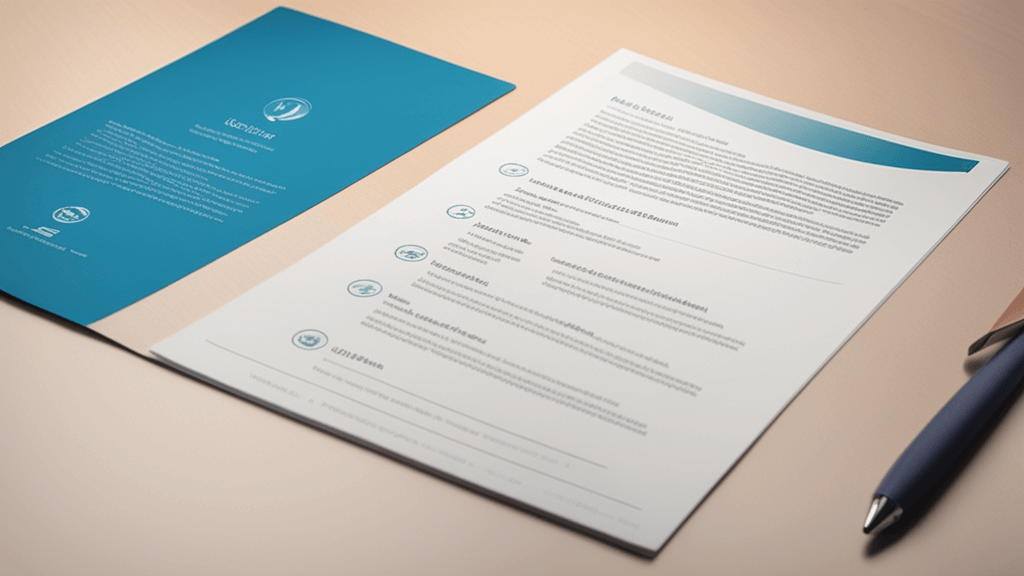Are you ready to land your dream job? Crafting a standout CV or resume is crucial for securing an interview. However, navigating job applications can be daunting. Fear not! This guide reveals five secrets for creating impressive career documents.

Who is this guide for?
Whether you’re experienced, a recent grad, or a freelancer, this guide helps you stand out in today’s job market.
Understanding the Difference Between a CV and a Resume
Before delving into crafting career documents, grasp the difference between a CV and a resume.
CV (Curriculum Vitae):
A CV is a comprehensive document that provides an in-depth overview of your academic background, research experience, publications, presentations, and professional accomplishments. It is typically used in academic, scientific, or research-related fields, as well as in certain international contexts. CVs are often longer than resumes and may span multiple pages, allowing you to include detailed information about your education, research projects, grants, and publications.
Resume:
A resume, on the other hand, is a concise summary of your relevant skills, experience, and accomplishments tailored to the specific job you’re applying for. Resumes are typically one to two pages in length and focus on highlighting your most relevant qualifications for the position. They are commonly used in the United States and Canada, as well as in many other industries and fields outside of academia.
Key Differences:
Length: CVs tend to be longer and more detailed, while resumes are shorter and more concise.
Content: CVs include extensive information about academic achievements, research experience, and publications, while resumes focus on relevant work experience, skills, and accomplishments.
Purpose: CVs are commonly used for academic, scientific, or research positions, while resumes are used for a wide range of job applications in various industries and sectors.
Formatting: CVs often include sections such as “Education,” “Research Experience,” and “Publications,” while resumes typically feature sections such as “Work Experience,” “Skills,” and “Education.”
Understanding the difference between a CV and a resume is crucial for tailoring your career documents effectively to each job application. By selecting the appropriate format and highlighting the most relevant information, you can create a compelling document that showcases your qualifications and maximizes your chances of success.
Addressing Common Challenges
Standing Out in a Competitive Market
Are you struggling to stand out in a sea of applicants? Discover powerful strategies to showcase your unique value proposition and leave hiring managers impressed. From crafting a compelling personal brand to highlighting your most relevant achievements, we’ll show you how to make a lasting impression in today’s competitive job market.
Crafting Compelling CVs for Freelancers
As a freelancer, differentiating your services online is key to securing lucrative opportunities. Learn how to craft a CV that serves as your digital elevator pitch, effectively communicating your skills, expertise, and unique selling points. We’ll share tips for highlighting your portfolio, client testimonials, and relevant experience to attract high-paying clients and stand out in a crowded marketplace.
Highlighting Achievements for Entry-Level Applicants
Worried about your limited experience as an entry-level candidate? Don’t let it hold you back! Discover how to highlight your achievements and transferable skills to shine in the eyes of potential employers. From internships and volunteer work to academic projects and extracurricular activities, we’ll show you how to showcase your potential and make a strong impression, even with limited professional experience.
Navigating Online Applications Efficiently
Feeling overwhelmed by the online job application process? Master the art of efficiently navigating applicant tracking systems (ATS) to ensure your CV/resume gets noticed by hiring managers. Learn how to optimize your document for ATS compatibility, strategically use keywords, and tailor your application to each job posting for maximum impact. We’ll help you streamline your application process and increase your chances of success in today’s digital job market.
Transforming CVs into Captivating Blogs
Are you a blogger looking to attract clients and establish your authority in your field? Unlock the secrets to transforming your CV into a captivating blog that showcases your expertise and builds your personal brand. From creating engaging content to optimizing your blog for search engines and social media, we’ll show you how to leverage your online presence to attract clients, grow your audience, and position yourself as a thought leader in your industry.
Practical Tips
Tip 1: Tailor Your Story to Each Job Application
Crafting a unique narrative tailored to the specific job description and company culture is essential in today’s competitive market. Take the time to thoroughly analyze the job posting, identifying key skills and requirements. Then, weave these keywords naturally throughout your document, highlighting relevant experiences and achievements that demonstrate your perfect fit for the role. Remember, relevance reigns supreme, so avoid generic templates and instead customize your CV or resume to address the specific needs of each employer.
Tip 2: Optimize Structure for Clarity
Clarity is king (or queen) when it comes to CVs and resumes. Embrace a clean and organized structure that guides hiring managers effortlessly through your qualifications. Start with a clear and concise summary or objective statement that highlights your career goals and key strengths. Use clear headings, concise bullet points, and easy-to-read fonts to present your professional experience, education, and skills in a format that is easy to scan. Remember, white space is your friend! For resumes, aim for a one-page format whenever possible, while CVs allow for slightly more flexibility in length.
Tip 3: Use Powerful Language
Ditch the jargon and passive voice! Use action verbs, impactful words, and quantifiable achievements to tell a compelling story of your accomplishments. Instead of simply listing job duties, focus on describing your contributions and the tangible results you achieved. For example, instead of saying “Responsible for managing projects,” you could say “Led cross-functional teams to successfully deliver projects on time and under budget, resulting in a XX% increase in client satisfaction.” By using specific examples and metrics, you can demonstrate your value and make a stronger impression on potential employers.
Tip 4: Integrate Keywords Naturally
Keywords are your allies, not your enemies! While it’s important to incorporate relevant keywords to ensure your document ranks high in search engine results, avoid the temptation to simply stuff your CV or resume with keywords. Instead, focus on integrating them organically throughout your narrative. Use synonyms and variations to weave keywords seamlessly into your content, making sure they fit naturally within the context of your achievements and experiences. Aim for a natural keyword density of 2-4% without sacrificing readability. Remember, your goal is to make it easy for hiring managers to find and understand your qualifications, so prioritize clarity and coherence in your writing.
Tip 5: Proofread and Edit Thoroughly
Meticulously proofread and edit your CV/resume for grammatical errors, typos, and formatting inconsistencies. Even minor mistakes can undermine your credibility and detract from the overall professionalism of your document. Consider using spelling and grammar checkers, but don’t rely solely on automated tools—take the time to review your document carefully line by line. Additionally, consider seeking feedback from a trusted friend, mentor, or professional colleague for an extra layer of polish. Fresh eyes can often catch mistakes or inconsistencies that you may have overlooked. Remember, attention to detail matters, so invest the time and effort to ensure your CV or resume is polished to perfection before sending it out to potential employers.
Conclusion
Crafting a stellar CV/resume is an investment in your future. By incorporating these secrets and tailoring your approach to each application, you’ll create documents that command attention, showcase your value, and land you your dream job. Crafting a stellar CV/resume is an investment in your future. By incorporating these secrets and tailoring your approach to each application, you’ll create documents that command attention, showcase your value, and land you your dream job. Remember, while a perfect CV is a good start, also train your elevator pitch for unexpected opportunities.
Recommended reads
- How to Write the Perfect Resume: Stand Out, Land Interviews, and Get the Job You Want by Dan Clay. Craft a winning resume that gets noticed! Dan Clay’s guide offers strategies to highlight your skills, tailor your content, and impress recruiters.
- How to Write a KILLER LinkedIn Profile… And 18 Mistakes to Avoid: Updated for 2019 by Brenda Bernstein. Optimize your LinkedIn presence and attract career opportunities. Brenda Bernstein helps you avoid common pitfalls and create a profile that showcases your value.
Help others to unlock their career potential
Share this article with friends, family, or colleagues who may benefit from it.



